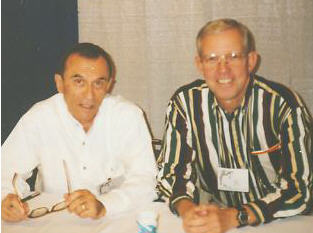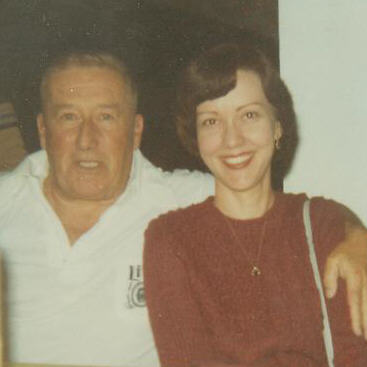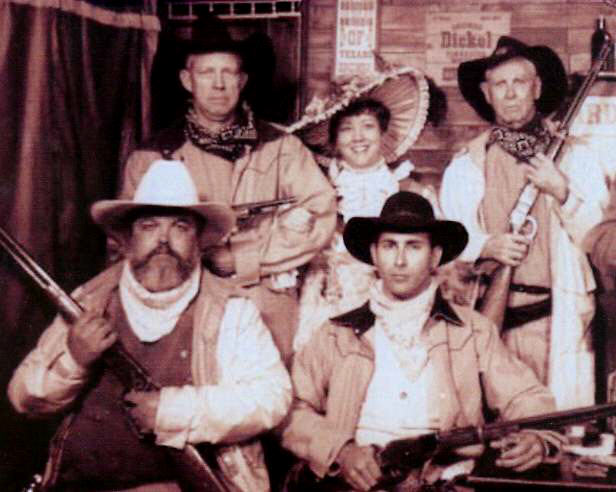It all started with Anthony Boucher and his "Criminals at Large" column in the New York Times Book Review. That's where, sometime in the late 1960s, I read about a fanzine called The JDM Bibliophile, published by Len and June Moffatt. I immediately sent off for an issue, and I was amazed to discover that there were people who were just as crazy as I was. Maybe even crazier. This was news to my wife, Judy, who had hoped that I was just going through a phase. And in fact, she's still not sure that there are any fans crazier than I am, except maybe in the case of a guy named Andy Jaysnovitch. But that's another story.
The people I discovered in the JDM Bibliophile didn't just read the books of John D. MacDonald. They reviewed them, dissected them, argued about them, and discussed them
endlessly. They were my kind of folks. I started writing letters to the Moffatts, and eventually I discovered other fanzines: Lianne Carlin's The Mystery Readers' Newsletter, Al Hubin's The Armchair Detective, Guy Townsend's The Mystery FANcier, Andy Jaysnovitch's The Not-so-Private-Eye, Jeff Meyerson's The Poisoned Pen. I wrote letters, articles, and reviews for all of them. I still contribute to fanzines, including Cap'n Bob Napier's incomparable letterzine, Mystery & Detective Monthly, and I'm proud to say that I'm the only person who's had a letter in every single one of its (to date) 182 issues.
At some point in my fannish meanderings, in the middle or latter 1970s, a mystery fan named Steve Lewis sent me a copy of his personalzine, The Fatal Kiss. Steve was a member of an
amateur press association (or apa) known as DAPA-Em, the only apa devoted to mystery zines. I sent for a sample mailing of the apa, and once again I discovered a group of kindred (or crazy) spirits. I was hooked. (Steve Lewis, The Moffats, and Anthony Boucher have a lot to answer for.) I began publication of my own zine, Macavity, and I've sent a zine to every mailing of DAPA-Em since, 148 of them so far.
A couple of years after I got involved with DAPA-Em, a friend named Billy Lee got interested in my collection of paperback books. He started collecting them himself and then decided to publish a little fanzine devoted to paperbacks. That's how Paperback Quarterly was born. I agreed to be the 'contributing editor,' write articles on mystery paperbacks and to
interview authors. I'll never forget the thrill of corresponding with people like William Campbell Gault, Harry Whittington, and Bruno Fischer. I'll also never forget how generous they
were with their time, and, in the case of Whittington, their books. Billy, his wife Charlotte Laughlin, and I wrote most of the issues of PQ at first (and probably at last). Billy was the one who printed the magazine, folded it, bound it, and stuffed it into envelopes. Sometimes he even managed to talk me into helping him.
What with all this writing for the fanzines, it was inevitable that I'd start attending conventions. I began with SF cons, and the first was in the spring of 1979, the annual AggieCon held at Texas A&M University. I've missed only one AggieCon since then, but I had a good excuse: I was in Europe. In the fall of 1979, the World Fantasy Convention was held in Ft. Worth, Texas, and I was there. I got a chance to meet (very briefly) many of the men and women who'd written books I'd enjoyed for years: Evangeline Walton, Fritz Leiber, Stephen King, Manley Wade Wellman, Harlan Ellison, Don Wollheim, Stephen Donaldson, Karl Edward Wagner, Lin Carter, L. Sprague de Camp, and many others. The convention was also attended
by some people I didn't meet at the time but who would later become friends of long standing: Joe Lansdale, Scott Cupp, and Willie Siros. We still reminisce on occasion about Fritz Leiber's banquet speech.
The next year, I went to Bouchercon for the first time. It was held in Washington, D.C., and the writer guests included Gregory Mcdonald, Brian Garfield, and James Grady. It was a very small convention, with only a few programs, a couple in the morning and a couple in the afternoon, as I recall. Maybe one in the evening. I've been to most of the Bouchercons since, except the ones held in Britain and the 1983 convention in New York. I'd just made a move to a new job that fall and didn't think I could afford to go. I'll always regret that decision, since the GoH was John D. MacDonald, and I missed my only chance to tell him how much pleasure his books had given me
and how it was partially his fault I'd gotten into fandom in the first place.
Through all of this, Judy (or, as some have begun to call her, 'the long-suffering Judy') has been with me. She's spent many hours waiting (sort of) patiently while I nose through dusty used-book stores for obscure titles by people nobody except me ever reads these days. She's endured living in a house cluttered with books, books, and more books. She's
traveled to conventions all over the country. Fortunately, she's a mystery reader herself, and if she doesn't entirely understand my obsessions, she at least tolerates them with good grace.
The SF fans have a word (or maybe it's just an acronym) for all of this: fiawol. Fandom is a way of life. As much as I hate to admit it, I think they're right.




